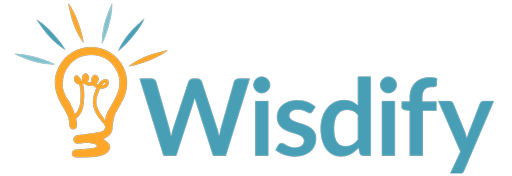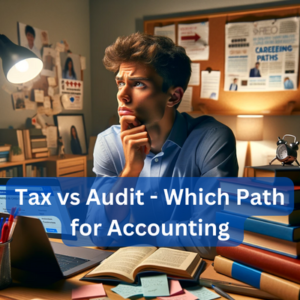I have 20 years in finance and I honestly believe senior accountants are the behind the scenes hero of corporate finance. They are in the middle of it everyday … closing the books, balance sheet reviews, account reconciliations, audit preparations and dealing with auditors, bridging the gap between the GL and the business and/or the FP&A team.
These unsung heroes orchestrate the ebb and flow of a company’s financial health with the finesse of a seasoned conductor.
Is it exciting? Maybe … maybe not. As with everything, it depends on what you are into! If you’ve ever wondered what it’s like to walk a mile in their meticulously organized GLs and SLs (or maybe not so organized 🙂 … either way, we will try to give you a little flavor here
Overall, the accounting responsibilities we talk about here are more geared toward what a senior accountant does in an ‘industry’ job.
By the way, if you are looking to skill up from a staff accountant to senior accountant, be sure to do our FREE Excel CPE course to get free CPE Credits (5 CPEs) and get on your way to promotion.
Senior Accountant Responsibilities
Closing the Books
The accounting close, or “closing the books,” is a critical process that marks the end of an accounting period, whether monthly, quarterly, or annually. Depending on the company, closing the books could be a brutal many days/weeks process that drains the life out of you … or it could be a process that is pretty well developed that is tough, but not a major disruption.
A senior accountant (and likely many other accountants at different levels) assist in this process which effectively ensures all financial transactions for the period have been accurately recorded and reconciled in the company’s general ledger (per Generally Accepted Accounting Principles or GAAP).
This involves reviewing and adjusting journal entries, such as accruals and deferrals, to reflect the true financial position of the business at the period’s end.
This systematic process is essential for accurate financial reporting and informed decision-making.
Account Reconciliations and Balance Sheet Reviews
Working through Account Recs and B/S reviews probably could be part of ‘closing the books’ but I like to split out.
Account reconciliations verify the integrity of financial data through ensuring reconciling sub ledger or reports to GL accounts. You have to ensure that all balances are correct and supported by documentary evidence. This systematic process is essential for accurate financial reporting and informed decision-making.
After everything is complete, typical a BS review is down to walk through all the accounts with the controller or CFO. This is a key financial control.
General Ledger Oversight
A senior accountant will help oversee the general ledger and general ledger account balances, ensuring all financial transactions are recorded accurately (and in accordance with GAAP) and in a timely manner. This includes performing regular reconciliations of all accounts (as mentioned above), identifying discrepancies, and implementing corrections. Maintaining the integrity of financial data is crucial for reliable reporting and analysis.
Internal Controls and Audits
Another item included in the list of responsibilities of a senior accountant may be developing and maintaining internal controls to safeguard the company’s assets and ensure the integrity of its financial data. This includes risk assessments and creating appropriate controls and procedures to prevent errors or compliance issues.
Senior accountants also liaise with external auditors during annual audits, providing necessary documentation and explanations for financial practices. This is critical in preventing errors and fraud within the organization.
Process Improvement
A good senior accountant will continually seek ways to improve financial processes and systems to increase efficiency, reduce errors, and enhance reporting capabilities. They may implement new accounting software, streamline procedures, or introduce best practices. This responsibility requires a proactive mindset and a commitment to ongoing improvement.
Financial Reporting and Analysis
Sr accountants often are responsible for preparing monthly, quarterly, and annual financial reports and financial statements. Either accounting or FP&A will analyze these (and other ad-hoc) reports to identify trends, variances, and areas of concern, providing insights to sales or ops to support running the business.
Other accounting Duties
A senior accountant job description can vary company to company, but other things I have frequently seen on the plate for the role:
- Budgeting and Forecasting … Depending on the business, a senior accountant (or FP&A) may play a key role in the budgeting and forecasting process, working closely with various functions and departments to project revenues and expenses. This responsibility requires strong analytical skills and the ability to work collaboratively across teams
- Cash flow management … this is sometimes owned by treasury or even FP&A, but I have seen owned by controllers and accountants as well. This would include: monitoring and manage the company’s cash flow, ensuring liquidity for the business. This may include maintaining the 13-week cash flow forecast and other similar tasks.
- Tax Compliance … Usually a tax team or outsourced tax team handles the heavy lifting here (things like tax returns), but a senior accountant may assist in tax planning and strategy to minimize liabilities and optimize financial performance. They may also pay property taxes or other transactional tax items
Senior Accountant Job Description (Qualifications/Requirements)
There is no one-size fits all here, but I wanted to provide a list of what the typical requirements might be on a job posting.
Education:
- Bachelor’s Degree in Accounting or Finance: This is pretty common … accounting degree would be strongly preferred as well. Definitely some come from other majors, but not as frequent as you see within finance.
- Master’s Degree in Accounting or Business Administration (MBA) (optional): Usually not required, though a lot of schools do a Master’s as a way to get your 150 credits for CPA.
Experience:
- 3-7 Years of Accounting Experience: Should have several years of experience in accounting or a related field, with a proven track record of managing financial processes and leading accounting tasks. Experience working in a similar industry as the hiring company is often preferred.
- Experience with Financial Reporting and Analysis: Demonstrated experience in preparing financial statements, conducting financial analysis, and understanding complex accounting issues.
Skills:
- Strong Analytical and Problem-Solving Skills: Ability to analyze financial data, identify trends or issues, and propose effective solutions.
- Advanced Proficiency in Accounting Software: Familiarity with accounting software (SAP, Oracle) and advanced Excel skills are important for managing data and performing analyses.
- Communication and Interpersonal Skills: Senior accountants must communicate financial information clearly to non-financial stakeholders and work effectively within a team.
Certifications (optional but beneficial):
- Certified Public Accountant (CPA): The CPA credential is well-regarded in the world of accounting. It’s not a must have in industry, but important
- Chartered Accountant (CA): Similar to the CPA, the CA designation is recognized internationally and signifies a high level of professional competence.
- Certified Management Accountant (CMA): This certification focuses on financial management and strategic decision-making, relevant for senior accountants involved in budgeting, forecasting, and financial analysis.
Other Qualifications:
- Knowledge of Regulatory Standards: Understanding of Generally Accepted Accounting Principles (GAAP), International Financial Reporting Standards (IFRS), and relevant tax laws.
- Leadership and Project Management Abilities: Capability to lead projects, guide junior staff, and manage deadlines effectively.
Work Life Balance as a Sr. Accountant
This question is difficult to answer as it depends tremendously based on:
- The company your work at (public, private, private equity owned … industry, etc)
- the area or division you work in within your company
- your immediate boss … as well as your Controller (or Chief Accounting Officer) and your company CFO
- The cadence of your reporting calendar
- and more!
So while I can’t give you perfect advice here (frankly, no one can!), I would recommend spending time on Reddit, Glassdoor, Linkedin, forums, and more to get into the details. Here is one good (fairly recent) post that gets into work-life balance
One other note on this is, these roles can often be done remote or hybrid. Despite a trend toward ‘return to work’ at many companies, accounting remains a position that is more flexible than many others.
Life in the Role
I’ve talked a lot about what the job is … The last big I would recommend doing is spending time researching if this is the right fit for you!



